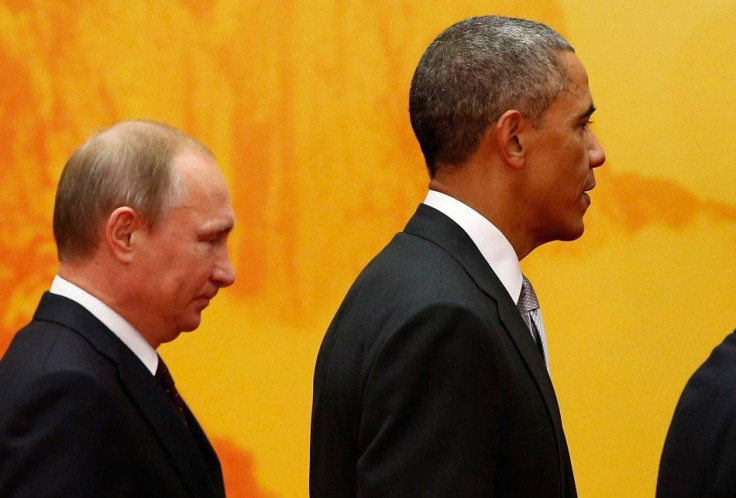Russia,China Could Launch Nuclear Attacks on US If Relations Fail, Pakistan and Iran Rising Threats

Amidst economic and diplomatic pressure to manage the nuclear ambitions of Iran, the United States reportedly failed to bring the country "to its knees" with talks extended for another 7 months. This comes after a new report advises the United States to keep Russian and Asian relations under control to prevent a nuclear assault.
The pressure on nations to manage their nuclear efforts has always been a sensitive issue. As reports about Iran's nuclear concerns continue and Russia's confidence in its tactical weapons surface, the United States and other nations are working on a clock to keep tensions and concerns under control. According to The Guardian, negotiators from the West are under pressure before Republican takeover of Congress as officials avoid losing power for new sanctions vote. Ayatollah Ali Khamenei, Iran's supreme leader, remarked that the West remained unsuccessful in subduing its nuclear ambitions.
"In the nuclear issue, America and colonial European countries got together and did their best to bring the Islamic Republic to its knees, but they could not do so - and they will not be able to do so," the leader's personal website published the quote. Mr Khamenei has the final say on all crucial Iranian policy matters including the region's nuclear program. Despite his support of the negotiations, the leader remained skeptical that there would be any fruitful results.
According to the New York Times, there are six major powers are in negotiations with Iran about it nuclear initiative. These include the United States, Russia, Germany, France, China and Britain. The talks have centered on the assumption that Iran has been actively developing technologies to create nuclear weapons. Concerns about future tensions and possible nuclear currently prevails as countries and the United States try to manage growing ambitions and threats across the globe.
Strategic Stability in the Second Nuclear Age
A new Council Special report published on Council Foreign Relations' website reveal that a new nuclear order has been rising. Increasing military technologies and nuclear states threaten the order. The United States and the Soviet Union worked on the initiative for nuclear weapons potential back in the Cold Wear. At present, there are 16,300 under the possession of the seven established nuclear-armed states. These include the United States, United Kingdom, Russia, Pakistan, India, France and China.
Despite the downsizing efforts, there is buildup in Asia with Pakistan working on the fastest-growing nuclear program in the world. The report estimates that by 2020, the country could create as many as 200 nuclear devices. The author of the report believes that South Asia could be the region "most at risk of a breakdown in strategic stability due to an explosive mixture of unresolved territorial disputes, cross-border terrorism, and growing nuclear arsenals."
The author also added: "The United States has more to lose from a breakdown in strategic stability than any other country due to its position as a global leader, the interdependence of its economy, and the network of security commitments it has around the world."
Russia and the United States still have 90 percent of the world's nuclear arms combined. While the relation has been strained, the author advises that the United States must maintain strategic efforts with China and Russia. The two countries currently have the capacity and enough intent to go nuclear on America's soil.





















